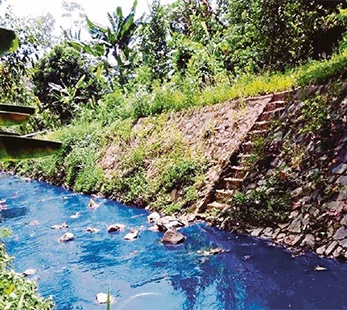ON the last leg of our journey to attaining the status of an advanced nation that is inclusive and sustainable by 2020, Transformasi Nasional 2050 (TN50) necessitates a fundamental paradigm shift of our entire political, economic and social system.
Some people may feel that since we don’t have a crystal ball, emphasising and embarking on such a futuristic and ambitious programme may end in abject failure. Nevertheless, I believe there is a considerable amount of consensus across the political spectrum to evaluate the key criteria of TN50.
Given that the future is uncertain, it is natural for one to hope for the best while avoiding making sacrifices — it is difficult for people to give up the things that they value today for the sake of the future. Yet, it would be immature to expect significant change or transformation in the future without deep thinking or a paradigm shift.
Furthermore, in the era of ageing populations and when the most pressing survival challenges cannot be solved in a single generation, the cultivation of a plan for the future has become essential for governments. A good government should be illuminated by the future because the future is not given, but co-created by our daily actions. For Malaysia, there are four crucial issues that must be sorted out before we talk about the future.
FIRST, the rise of inequality is now at the forefront of a national debate; public discourse generally asserts that inequality has risen, or is persistent. However, the term “inequality” means different things to different people. We need to clarify the term because inequality exists in many spheres of life — we have unequal political, economic and social power. Are we concerned about the inequality of opportunities or the inequality of outcomes? Inequality among whom? Are we talking about eradicating poverty?
Drawing lessons from the past and taking a fresh look through distributional eyes, it is crucial to ask what can be done now to reduce inequality. There has to be an appetite for action and any proposal should be translated into legislation and action.
SECOND, the TN50 roadmap needs to prioritise environmental protection. We do not need to follow the same patterns of development that the developed countries adopted generations ago. Instead of spending billions of ringgit on unplanned growth, or having megacities with megamalls, we need to develop liveable communities with more green public spaces. People should be educated on environmental issues and how serious they are. Government policies and regulations can play an important role in restoring and protecting the environment.
THIRD, one of the many diverse and fascinating challenges we face is how to understand and shape the new technology revolution, which entails nothing less than the transformation of everything at all levels. Economists are predicting that by 2050, virtually all industries, from banking to manufacturing, will be integrating digitised automation and robotics. According to the Malaysia Productivity Corporation report, small- and medium-sized enterprises (SMEs) account for the majority of business establishments (97.3 per cent), and information and communication technology adoption by SMEs is a mere 10 per cent. This is in stark contrast to developed countries where the adoption rate is 50 per cent.
Professor Klaus Schwab, founder and executive chairman of the World Economic Forum, describes how technology and society coexist, and makes the case that we are in the midst of a fourth and distinct revolution that is changing the way we live, work and relate to one another. Awareness and shared understanding are critical if we are to shape a collective future that reflects common objectives and values. In the coming decades, the technologies driving the fourth industrial revolution will fundamentally transform the entire structure of the economy, our politics and social system.
LAST, but not least, our education system should undergo a paradigm shift in the teaching and learning process to prepare the younger generation for 2050. The world is changing at a rapid pace, hence, our education system must transform too. What and how we teach our children today will determine the values, beliefs and attitudes, as well as the skills of tomorrow’s citizens. It is time to rethink the goal of education. If we are to develop healthy social processes and create a future that we want, we need to reform our education system and not shy away from addressing the challenges and limitations of our education system and institutions.
What the government needs is not a firm projection of what the future will bring, but approaches that prepare us for both risks and prospects. No one can know for sure what the future holds. Nonetheless, it is possible to understand the present and the opportunities that it offers.





